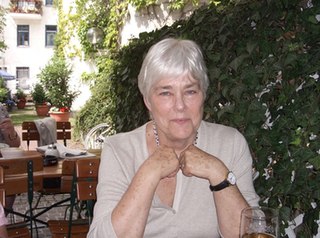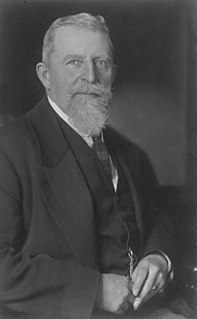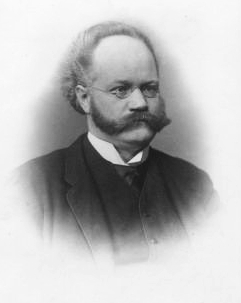 W
WNicholas Justin Allen was an English physician and social anthropologist who specialized in Indo-European studies. Allen was Viceregent at Wolfson College, Oxford and Anthropology Editor of the Journal of Indo-European Studies.
 W
WMichail Petrov Arnaudov was a Bulgarian folklorist, literary historian, ethnographer.
 W
WKurt Ranke was a German ethnologist who specialized in the study of fairy tales.
 W
WHelmut Birkhan is an Austrian philologist who is Professor Emeritus of Ancient German Language and Literature and the former Managing Director of the Institute for Germanic Studies at the University of Vienna.
 W
WFranz Bopp was a German linguist known for extensive and pioneering comparative work on Indo-European languages.
 W
WÉmile-Louis Burnouf was a leading nineteenth-century Orientalist and racialist author of Aryanism. He was a professor at the faculté des lettres at Nancy University, then principal of the French School at Athens from 1867–1875. He was also the author of a Sanskrit-French dictionary.
 W
WEugène Burnouf was a French scholar, an Indologist and orientalist. His notable works include a study of Sanskrit literature, translation of the Hindu text Bhagavata Purana and Buddhist text Lotus Sutra. He wrote a foundational text on Buddhism and also made significant contributions to the deciphering of Old Persian cuneiform.
 W
WGeorges Charachidzé was a French-Georgian scholar of the Caucasian cultures. His most important works focused on the history of Georgian feudalism, pagan religious beliefs of the Georgians as well as the Caucasian comparative mythology and the North Caucasian languages.
 W
WWarren Cowgill was an American linguist. He was a professor of linguistics at Yale University and the Encyclopædia Britannica's authority on Indo-European linguistics. Cowgill was unusual among Indo-European linguists of his time in believing that Indo-European should be classified as a branch of Indo-Hittite, with Hittite as a sister language of the Indo-European languages, rather than a daughter language.
 W
WIgor Mikhailovich Diakonoff was a Russian historian, linguist, and translator and a renowned expert on the Ancient Near East and its languages. His last name is occasionally spelled Diakonov. His brothers were also distinguished historians.
 W
WAlbert Richard Diebold Jr. was an American linguistic anthropologist who was Professor of Anthropology at the University of Arizona. He specialized in Indo-European studies.
 W
WGeorges Edmond Raoul Dumézil was a French philologist, linguist, and religious studies scholar who specialized in comparative linguistics and mythology. He was a professor at Istanbul University, École pratique des hautes études and the Collège de France, and a member of the Académie Française. Dumézil is well known for his formulation of the trifunctional hypothesis on Proto-Indo-European mythology and society. His research has had a major influence on the fields of comparative mythology and Indo-European studies.
 W
WMircea Eliade was a Romanian historian of religion, fiction writer, philosopher, and professor at the University of Chicago. He was a leading interpreter of religious experience, who established paradigms in religious studies that persist to this day. His theory that hierophanies form the basis of religion, splitting the human experience of reality into sacred and profane space and time, has proved influential. One of his most instrumental contributions to religious studies was his theory of eternal return, which holds that myths and rituals do not simply commemorate hierophanies, but, at least to the minds of the religious, actually participate in them.
 W
WMarija Gimbutas was a Lithuanian archaeologist and anthropologist known for her research into the Neolithic and Bronze Age cultures of "Old Europe" and for her Kurgan hypothesis, which located the Proto-Indo-European homeland in the Pontic Steppe.
 W
WKonráð Gíslason was an Icelandic grammarian and philologist, and one of the Fjölnismenn, a group of Icelandic intellectuals who spearheaded the revival of Icelandic national consciousness in the 19th century. He was by royal appointment member of the 1949 Danish Constituent Assembly.
 W
WGaspare Gorresio was an Italian Orientalist and Indologist, best known for his translation of the Valmiki Ramayana, the great Hindu epic.
 W
WJacob Ludwig Karl Grimm, also known as Ludwig Karl, was a German linguist, philologist, jurist, and folklorist. He is known as the discoverer of Grimm's law of linguistics, the co-author of the monumental Deutsches Wörterbuch, the author of Deutsche Mythologie, and the editor of Grimm's Fairy Tales. He was the older brother of Wilhelm Grimm, of the literary duo the Brothers Grimm.
 W
WHermann Güntert was a German linguist who specialized in Germanic and Indo-European linguistics.
 W
WEric Pratt Hamp was an American linguist widely respected as a leading authority on Indo-European linguistics, with particular interests in Celtic languages and Albanian. Unlike many Indo-Europeanists, who work entirely on the basis of written materials, he conducted extensive fieldwork on lesser-known Indo-European languages and dialects, such as Albanian, Arbëresh and Arvanitika; Breton; Welsh; Irish; Resian and Scots Gaelic.
 W
WHermann Hirt was a German philologist and Indo-Europeanist.
 W
WKarl Hoffmann was a German linguist who specialized in Indo-European and Indo-Iranian studies. He is most recognized for his achievements in his studies of Vedic Sanskrit, Avestan and Old Persian languages.
 W
WJesús Javier de Hoz Bravo, was a Spanish philologist and Catedrático.
 W
WVyacheslav Vsevolodovich Ivanov was a prominent Soviet/Russian philologist, semiotician and Indo-Europeanist probably best known for his glottalic theory of Indo-European consonantism and for placing the Indo-European urheimat in the area of the Armenian Highlands and Lake Urmia.
 W
WCarol F. Justus was an American linguist who specialized in Indo-European linguistics.
 W
WLothar Kilian was a German archaeologist and linguist who researched Balts, Germanic peoples and the Proto-Indo-European homeland.
 W
WWolfgang Krause was a German philologist and linguist. A professor at the University of Göttingen for many years, Krause specialized in comparative linguistics, and was an authority on Celtic studies, Tocharian languages, Germanic studies, Old Norse and particularly runology.
 W
WFranz Felix Adalbert Kuhn was a German philologist and folklorist.
 W
WElena Efimovna Kuzmina was a Russian archaeologist. She was the chief research officer of the Russian Institute for Cultural Researches. She led twenty five archaeological expeditions and participated in over a hundred, mostly in the Eurasian steppe region.
 W
WCovington Scott Littleton was an American anthropologist who was Professor and Chair of the Department of Anthropology at Occidental College. A co-founder of the Journal of Indo-European Studies, Littleton was an expert on Indo-European mythology and Shinto, on which he was the author of numerous works.
 W
WManfred Mayrhofer was an Austrian Indo-Europeanist who specialized in Indo-Iranian languages. Mayrhofer served as professor emeritus at the University of Vienna. He is noted for his etymological dictionary of Sanskrit.
 W
WPaul Jules Antoine Meillet was one of the most important French linguists of the early 20th century. He began his studies at the Sorbonne University, where he was influenced by Michel Bréal, Ferdinand de Saussure and the members of the L'Année Sociologique. In 1890, he was part of a research trip to the Caucasus, where he studied the Armenian language. After his return, de Saussure had gone back to Geneva so he continued the series of lectures on comparative linguistics that the Swiss linguist had given.
 W
WDean Arthur Miller was an American historian who was Professor of History at the University of Rochester. He specialized in the classics, Celtic studies and Indo-European studies, with a particular focus on Heroic poetry.
 W
WGeorg Valentin von Munthe af Morgenstierne was a Norwegian professor of linguistics with the University of Oslo (UiO). He specialized in Indo-Iranian languages.
 W
WRudolf Much was an Austrian philologist and historian who specialized in Germanic studies. Much was Professor and Chair of Germanic Linguistic History and Germanic Antiquity at the University of Vienna, during which he tutored generations of students and published a number of influential works, some of which have remained standard works up to the present day.
 W
WFriedrich Max Müller was a German-born philologist and Orientalist, who lived and studied in Britain for most of his life. He was one of the founders of the western academic disciplines of Indian studies and religious studies. Müller wrote both scholarly and popular works on the subject of Indology. The Sacred Books of the East, a 50-volume set of English translations, was prepared under his direction. He also promoted the idea of a Turanian family of languages.
 W
WFrancis Owen was a Canadian philologist and military officer. He was Professor of German and Chairman of the Department of Modern Languages at the University of Alberta, and the author of the first complete scholarly work on the history and early culture of the Germanic peoples. His works on this subject are still cited in modern scholarship.
 W
WEdgar Ghislain Charles Polomé was a Belgian-born American philologist and religious studies scholar. He specialized in Germanic and Indo-European studies and was active at the University of Texas at Austin for much of his career.
 W
WKarl Wilhelm Friedrich Schlegel was a German poet, literary critic, philosopher, philologist, and Indologist. With his older brother, August Wilhelm Schlegel, he was one of the main figures of Jena Romanticism.
 W
WAugust Schleicher was a German linguist. His great work was A Compendium of the Comparative Grammar of the Indo-European Languages in which he attempted to reconstruct the Proto-Indo-European language. To show how Indo-European might have looked, he created a short tale, Schleicher's fable, to exemplify the reconstructed vocabulary and aspects of Indo-European society inferred from it.
 W
WJohannes Friedrich Heinrich Schmidt was a German linguist. He developed the Wellentheorie of language development.
 W
WFranz Rolf Schröder, often referred to as F. R. Schröder, was a German philologist who was Professor and Chair of German Philology at the University of Würzburg. He specialized in the study German and early Germanic literature, and Germanic and Indo-European religion. He was for many decades editor of the Germanisch-Romanische Monatsschrift.
 W
WLeopold von Schroeder was a German Indologist.
 W
WBernard Sergent is a French ancient historian and comparative mythologist. He is researcher of the CNRS and president of the Société de mythologie française.
 W
WAndrew George Sherratt was an English archaeologist, one of the most influential of his generation. He was best known for his theory of the secondary products revolution.
 W
WRichard von Kienle was a German linguist who specialized in Germanic and Indo-European linguistics.
 W
WJan Pieter Marie Laurens de Vries was a Dutch philologist, linguist, religious studies scholar, folklorist, educator, writer, editor and public official who specialized in Germanic studies.
 W
WDonald J. Ward was an American folklorist who was Professor of German and Folklore and Director of Center for the Study of Comparative Folklore and Mythology at University of California, Los Angeles. He specialized in the study of Germanic and Indo-European mythology.
 W
WCalvert Watkins was an American linguist and philologist, known for his book How to Kill a Dragon. He was a professor of linguistics and the classics at Harvard University and after retirement went to serve as professor-in-residence at UCLA.
 W
WMartin Litchfield West, was a British philologist and classical scholar. In recognition of his contribution to scholarship, he was awarded the Order of Merit in 2014.
 W
WGeo Widengren was a Swedish historian of religions, professor of history of religions at Uppsala University, orientalist and Iranist.
 W
WOscar Stig Wikander was a Swedish Indologist, Iranologist and religious scientist.
 W
WJohann Karl Werner Winter was a German Indo-European specialist and linguist.
 W
WWalther Wüst was a German Indologist who served as Rector of the University of Munich from 1941 to 1945.